
Find Help
More Items From Ergsy search
-
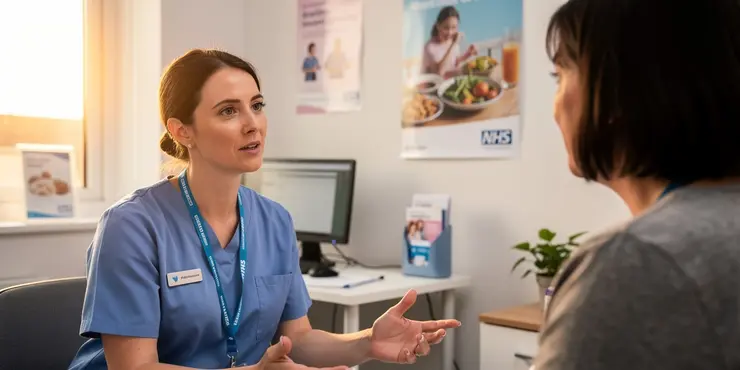
What is the sugar tax in the UK?
Relevance: 100%
-
Is the sugar tax applied to diet or zero sugar drinks?
Relevance: 96%
-
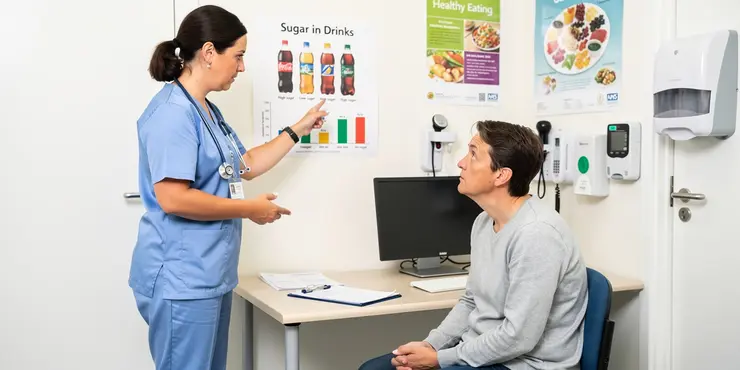
Has the sugar tax affected the sugar content in drinks?
Relevance: 96%
-

Who pays the sugar tax?
Relevance: 96%
-

What is the purpose of the sugar tax?
Relevance: 95%
-

What are the long-term goals of the sugar tax?
Relevance: 91%
-

Has the sugar tax been effective?
Relevance: 91%
-

Which drinks are exempt from the sugar tax?
Relevance: 89%
-

Does the sugar tax apply to small businesses?
Relevance: 88%
-

How does the sugar tax affect consumers?
Relevance: 88%
-

How is the revenue from the sugar tax used?
Relevance: 88%
-
How much revenue has the sugar tax generated?
Relevance: 85%
-

Has the sugar tax led to innovation in the drinks industry?
Relevance: 84%
-
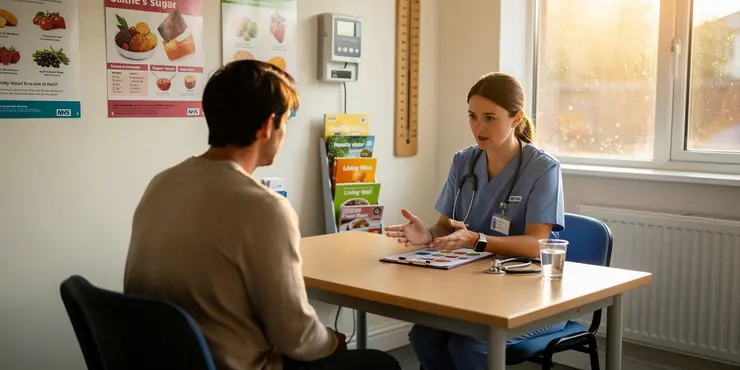
How does the sugar tax align with public health strategies?
Relevance: 83%
-

What impact has the sugar tax had on obesity rates?
Relevance: 82%
-

When was the sugar tax introduced in the UK?
Relevance: 72%
-
What are the rates for the sugar tax?
Relevance: 72%
-

How is the sugar tax applied?
Relevance: 72%
-
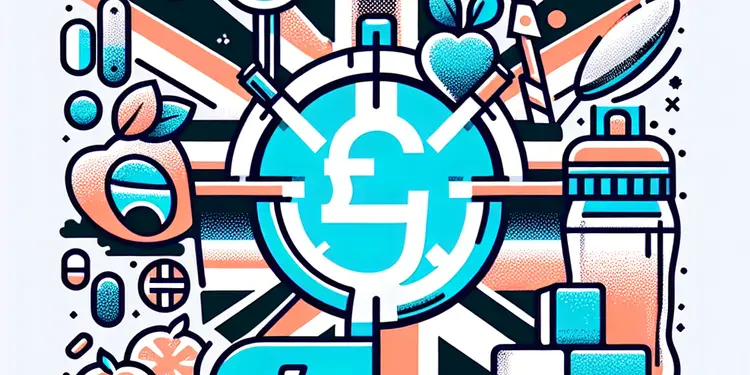
Are sugar substitutes healthier than regular sugar?
Relevance: 62%
-
What is the difference between natural sugar and added sugar?
Relevance: 60%
-
Have any other countries implemented a sugar tax similar to the UK?
Relevance: 60%
-

What is the 'sugar crash'?
Relevance: 59%
-
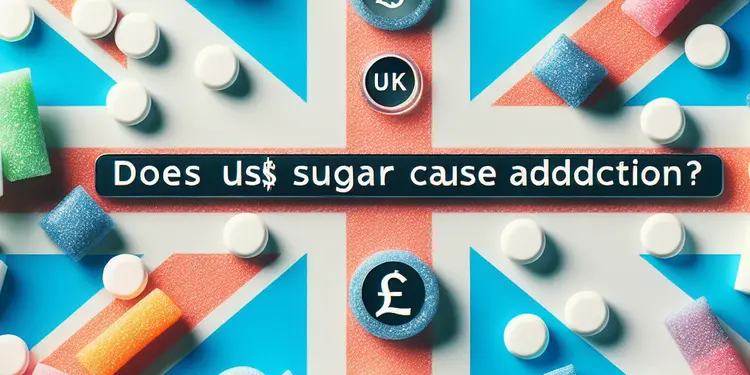
Does sugar cause addiction?
Relevance: 56%
-

Can I have sugar if I am diabetic?
Relevance: 56%
-
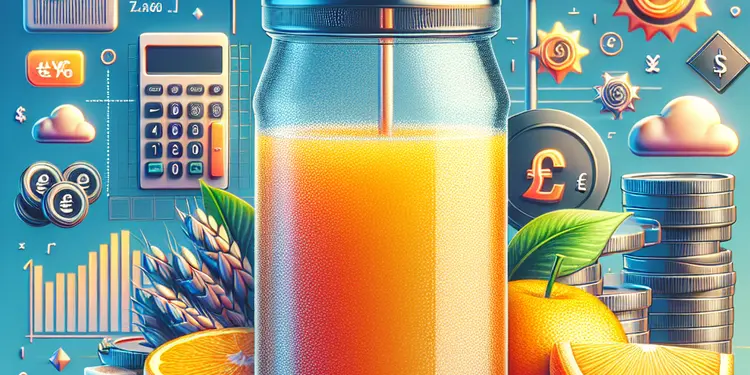
Is orange juice high in sugar?
Relevance: 56%
-

Is honey a better alternative to sugar?
Relevance: 55%
-
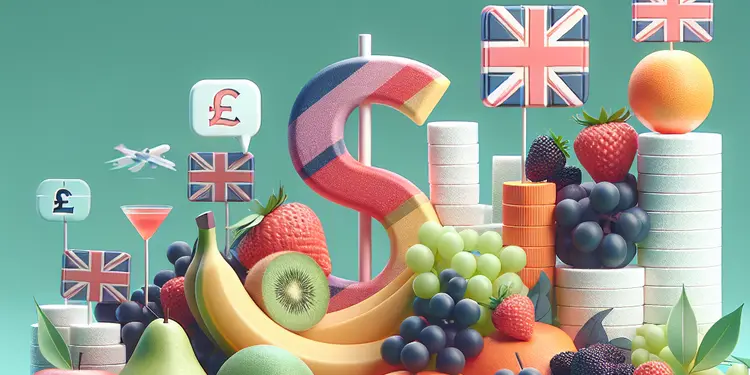
Is the sugar in fruit bad for you?
Relevance: 55%
-
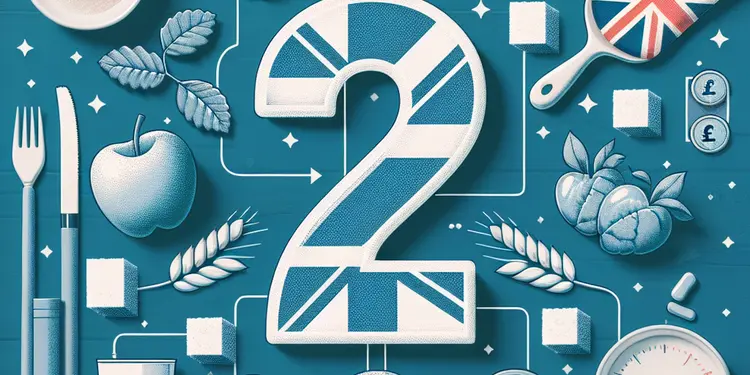
What is the role of sugar in a balanced diet?
Relevance: 54%
-

Why is it important to limit sugar intake?
Relevance: 53%
-

How can I reduce my sugar intake?
Relevance: 53%
-
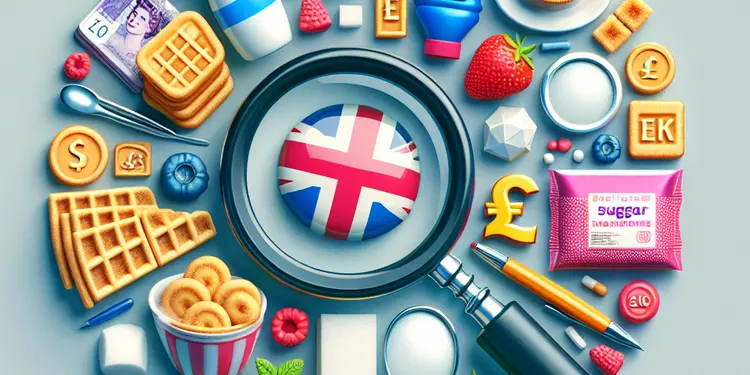
How do I determine how much sugar is in a product?
Relevance: 52%
-
What are 'free sugars' and why should they be limited?
Relevance: 52%
-

What are some hidden sources of added sugars?
Relevance: 52%
-

What is the recommended daily sugar intake for adults?
Relevance: 52%
-

How does sugar affect my energy levels?
Relevance: 51%
-

How does sugar impact mental health?
Relevance: 51%
-

How much sugar should I eat every day?
Relevance: 50%
-
Are there any criticisms of the sugar tax?
Relevance: 50%
-

Can reducing sugar intake aid weight loss?
Relevance: 50%
-

Can Baxdrostat affect blood sugar levels?
Relevance: 49%
Introduction to the Sugar Tax in the UK
The sugar tax, officially known as the Soft Drinks Industry Levy, was introduced in the United Kingdom as part of a broader initiative to address the growing public health concerns related to sugar consumption. The introduction of this levy marked a significant step by the UK government to tackle the pervasive issue of childhood obesity and other health-related problems associated with high sugar intake.
When Was the Sugar Tax Introduced?
The sugar tax was first announced during the UK government's budget on March 16, 2016. However, it did not come into effect immediately. It was implemented on April 6, 2018. This period between announcement and implementation gave producers time to reformulate their products to avoid the levy by reducing the sugar content in their soft drinks.
Details of the Sugar Tax
The sugar tax imposed a levy on soft drinks with a total sugar content above specific thresholds. The levy is structured in two bands. The lower rate applies to drinks containing five grams or more of sugar per 100 milliliters. A higher rate is applied to drinks containing eight grams or more sugar per 100 milliliters. Notably, the tax applies to companies that produce sugary drinks, providing a financial incentive for them to reduce sugar content.
Impact of the Sugar Tax
The goal of the sugar tax was not merely to generate revenue but primarily to encourage manufacturers to reformulate their products and reduce sugar levels. The tax led to a significant reformulation of many sugary drinks, as manufacturers sought to reduce the sugar content to fall below taxing thresholds. As a result, several popular drinks on the UK market saw their sugar levels drop significantly.
Public Health and Economic Considerations
Proponents of the sugar tax argued that it was a critical step for public health, aimed at reducing the incidence of obesity, diabetes, and tooth decay among the population, particularly children. Economically, while some critics expressed concerns about the impact on the soft drink industry, evidence showed that the reformulation of drinks had minimal overall negative economic impact. In fact, the initiative has been praised for its positive health implications and has inspired similar measures in other countries worldwide.
Conclusion
Since its implementation in April 2018, the UK’s sugar tax has been regarded as a successful public health measure. It not only incentivized the reduction of sugar content in soft drinks but also raised public awareness about the impacts of high sugar consumption. The sugar tax remains a blueprint for public health policy aimed at combating diet-related health issues and continues to evolve as part of the UK Government’s broad efforts to promote healthier lifestyles.
What is the Sugar Tax in the UK?
The sugar tax is a special rule in the UK. It is also called the Soft Drinks Industry Levy. It was made to help with problems caused by too much sugar. The UK government wanted to help stop kids from getting too fat and becoming sick from eating too much sugar.
When Did the Sugar Tax Start?
The sugar tax was announced on March 16, 2016. But it didn't start right away. It began on April 6, 2018. This gave drink makers time to change their recipes to have less sugar so they wouldn't have to pay the tax.
How Does the Sugar Tax Work?
The sugar tax charges money on sugary drinks if they have too much sugar. There are two levels of tax. One level is for drinks with five grams or more of sugar in 100 milliliters. The other level is for drinks with eight grams or more in 100 milliliters. This tax makes companies want to lower the sugar in their drinks.
What Has the Sugar Tax Done?
The sugar tax was made to get companies to lower the sugar in their drinks, not just to make money. Because of the tax, many companies changed their drinks to have less sugar. This means lots of drinks in the UK now have less sugar than before.
Why is the Sugar Tax Good?
People who like the sugar tax say it's good for health. It helps stop people, especially kids, from getting very overweight, getting diabetes, and having teeth problems. Some people worried about how it would change the drink business. But evidence shows it didn’t hurt the economy too much. It even helped because it makes people healthier. Other countries also like the idea and are doing the same thing.
What Have We Learned?
Since April 2018, the sugar tax has helped a lot. It made companies use less sugar in drinks and made people think more about how much sugar they eat. The sugar tax is a good example of how to make people healthier. The UK government is keeping up with these ideas to help people live better.
Frequently Asked Questions
Useful Links
This website offers general information and is not a substitute for professional advice.
Always seek guidance from qualified professionals.
If you have any medical concerns or need urgent help, contact a healthcare professional or emergency services immediately.
Some of this content was generated with AI assistance. We’ve done our best to keep it accurate, helpful, and human-friendly.
- Ergsy carfully checks the information in the videos we provide here.
- Videos shown by Youtube after a video has completed, have NOT been reviewed by ERGSY.
- To view, click the arrow in centre of video.
- Most of the videos you find here will have subtitles and/or closed captions available.
- You may need to turn these on, and choose your preferred language.
- Go to the video you'd like to watch.
- If closed captions (CC) are available, settings will be visible on the bottom right of the video player.
- To turn on Captions, click settings .
- To turn off Captions, click settings again.
More Items From Ergsy search
-

What is the sugar tax in the UK?
Relevance: 100%
-
Is the sugar tax applied to diet or zero sugar drinks?
Relevance: 96%
-

Has the sugar tax affected the sugar content in drinks?
Relevance: 96%
-

Who pays the sugar tax?
Relevance: 96%
-

What is the purpose of the sugar tax?
Relevance: 95%
-

What are the long-term goals of the sugar tax?
Relevance: 91%
-

Has the sugar tax been effective?
Relevance: 91%
-

Which drinks are exempt from the sugar tax?
Relevance: 89%
-

Does the sugar tax apply to small businesses?
Relevance: 88%
-

How does the sugar tax affect consumers?
Relevance: 88%
-

How is the revenue from the sugar tax used?
Relevance: 88%
-
How much revenue has the sugar tax generated?
Relevance: 85%
-

Has the sugar tax led to innovation in the drinks industry?
Relevance: 84%
-

How does the sugar tax align with public health strategies?
Relevance: 83%
-

What impact has the sugar tax had on obesity rates?
Relevance: 82%
-

When was the sugar tax introduced in the UK?
Relevance: 72%
-

What are the rates for the sugar tax?
Relevance: 72%
-

How is the sugar tax applied?
Relevance: 72%
-

Are sugar substitutes healthier than regular sugar?
Relevance: 62%
-

What is the difference between natural sugar and added sugar?
Relevance: 60%
-

Have any other countries implemented a sugar tax similar to the UK?
Relevance: 60%
-

What is the 'sugar crash'?
Relevance: 59%
-

Does sugar cause addiction?
Relevance: 56%
-

Can I have sugar if I am diabetic?
Relevance: 56%
-

Is orange juice high in sugar?
Relevance: 56%
-

Is honey a better alternative to sugar?
Relevance: 55%
-

Is the sugar in fruit bad for you?
Relevance: 55%
-

What is the role of sugar in a balanced diet?
Relevance: 54%
-

Why is it important to limit sugar intake?
Relevance: 53%
-

How can I reduce my sugar intake?
Relevance: 53%
-

How do I determine how much sugar is in a product?
Relevance: 52%
-

What are 'free sugars' and why should they be limited?
Relevance: 52%
-

What are some hidden sources of added sugars?
Relevance: 52%
-

What is the recommended daily sugar intake for adults?
Relevance: 52%
-

How does sugar affect my energy levels?
Relevance: 51%
-

How does sugar impact mental health?
Relevance: 51%
-

How much sugar should I eat every day?
Relevance: 50%
-
Are there any criticisms of the sugar tax?
Relevance: 50%
-

Can reducing sugar intake aid weight loss?
Relevance: 50%
-

Can Baxdrostat affect blood sugar levels?
Relevance: 49%


